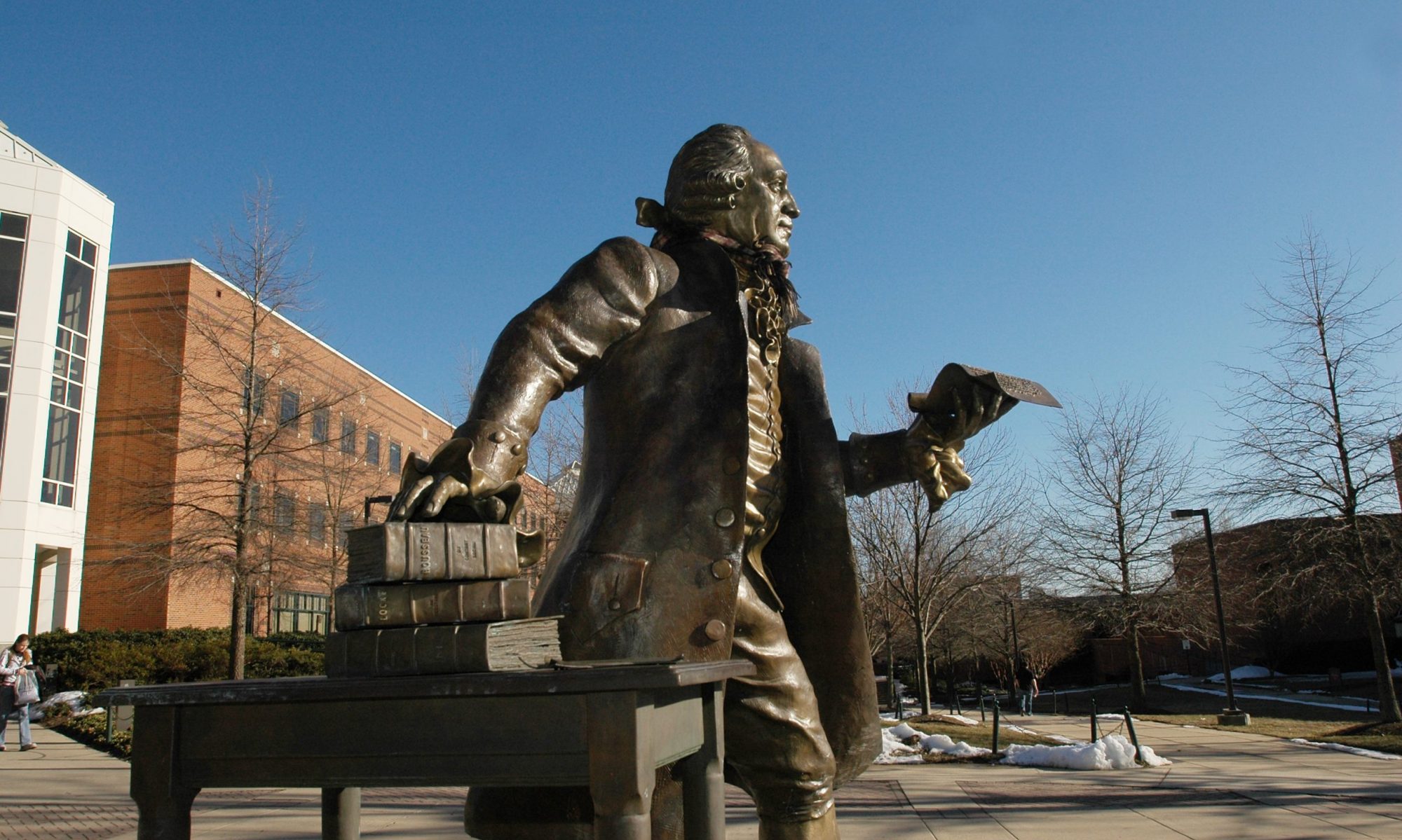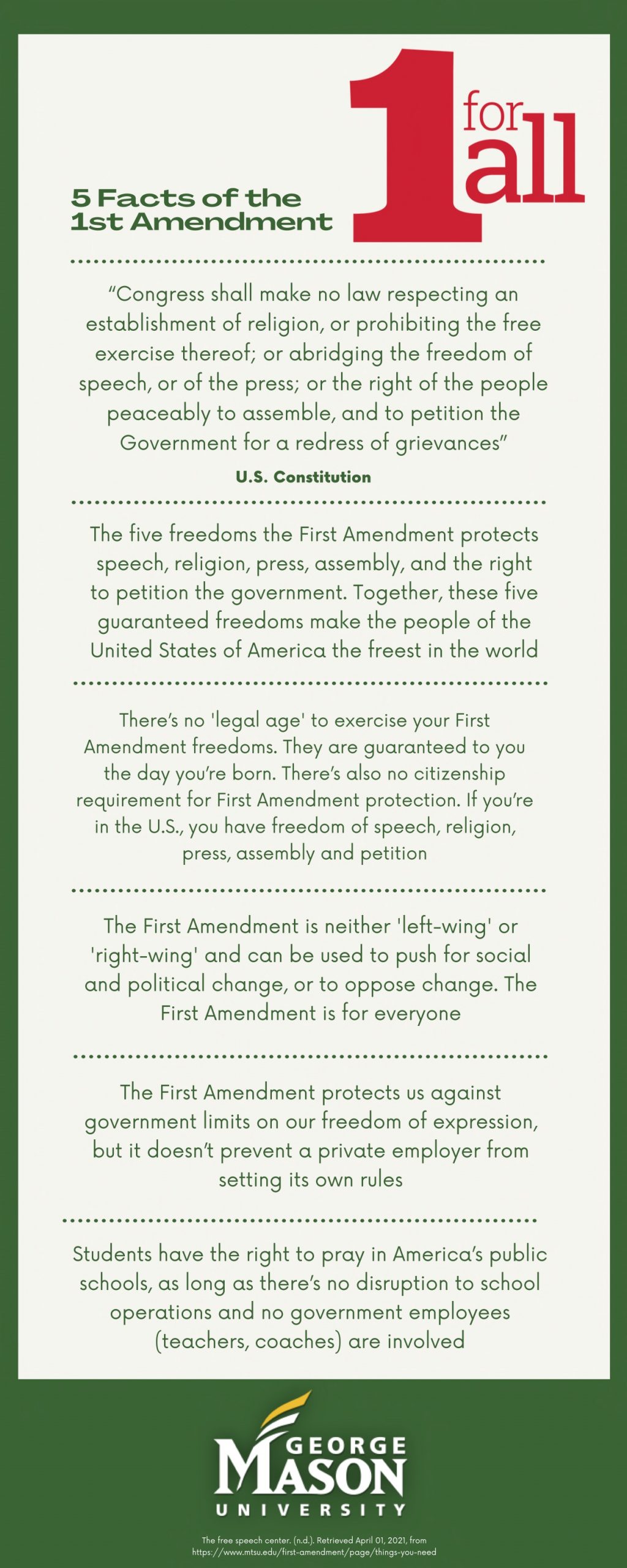You have a voice. The George Mason University “1 for All” campaign encourages every Mason student and community member to understand and implement their First Amendment rights into their daily lives. The tactics presented on this website should help build a greater understand of how to make this possible. For more information about the First Amendment as well as updates on current events in the United States that revolve around the First Amendment visit https://www.mtsu.edu/first-amendment/ .
About Us
Rachel Stevenson and Megan Kordalski are seniors at George Mason University. Stevenson is studying communication with a concentration in journalism and public relations with a minor in Spanish. Kordalski is studying communication with a concentration in public relations. Stevenson and Kordalski are a part of the graduating class of 2021.


How You Can Help
The United States has created these rights for the free exchange of information and ideas that have made America the country that we are today. For more information on your rights given by the First Amendment as a citizen of the United States of America and how to help build an understanding of the amendment please visit https://mtsu.edu/first-amendment/page/make-a-difference .
Did You Know?
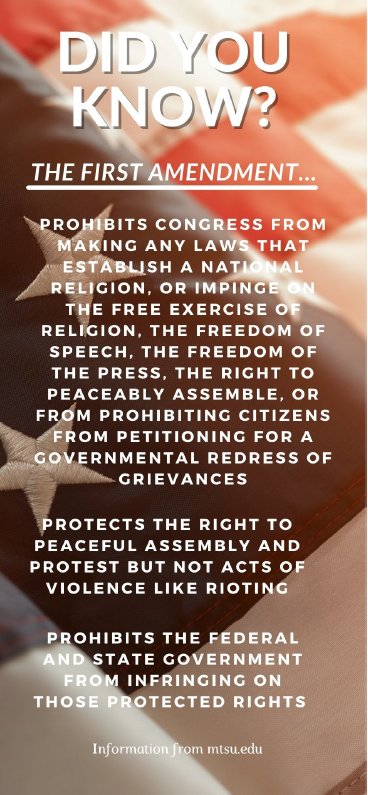
Did you know that the First Amendment protects United States citizens from congress, federal, or state government from establishing law that can infringe on your rights stated in the amendment? As citizens it is our duty to understand our rights and to hold the government accountable if you believe they are infringing on them. Learn your rights and how to use them.
Music Censorship and the First Amendment
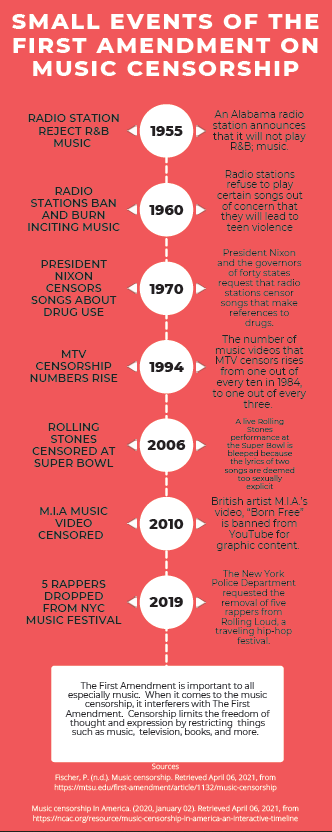
When campus is at its full capacity and buzzing like usual, many students walk around campus with earbuds in and listen to their favorite music while studying or on their way to class. The JC, Sub 1, the Hub, and all of the dining halls have music playing for every student to enjoy. Music is a big part of George Mason Universities campus and it is important to know how the music that we listen to today faced challenges of being aired to the public. Music and censorship has been one of the most highly debated parts of the First Amendment throughout the decades as styles and culture changes. This infographic, created by one of the students in the communication department, gives a quick glimpse into the history of music censorship.
First Amendment Everyday Rights
The First Amendment protects and maintains democracy, making it one of the most important amendments. According to Penn Today: 73% of Americans named the freedom of speech, 47% named the freedom of religion, 42% named the freedom of press, 34% named the right of assembly, and 14% named the right to petition the government. This is a drastic percentage incline from 2017. The founding fathers demanded that these five freedoms were protected before signing the Constitution, which then created the First Amendment.
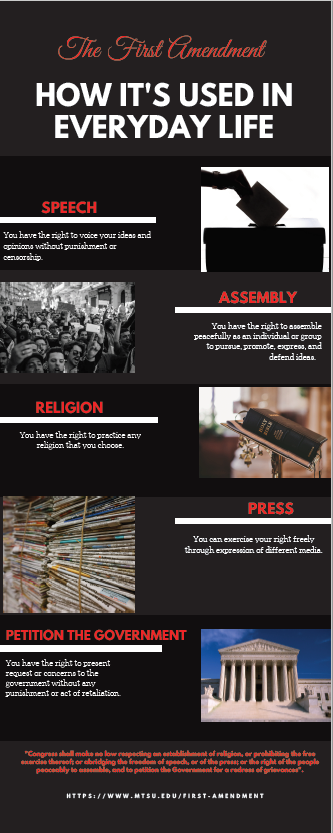
WGMU PSA
Students creating tactics for the campaign utilized the wide spread of media opportunities that the George Mason University has to offer to it’s students to spread the word about our campaign and the importance of the First Amendment. This tactic was a public service announcement on WGMU, a radio station on the George Mason University Campus that can be listened to by Northern Virginia listeners, which streams 24 hours a day and 7 days a week.
GMU Students’ Knowledge of the First Amendment
58 Students at George Mason University were asked basic questions regarding their knowledge on the First Amendment and the results are shown below. Nearly half the students who participated in the survey agreed that the First Amendment ‘defines American culture’, while nearly 30% said that they ‘usually forget about it’. College students typically do not realize when they are practicing their First Amendment rights, or what those rights are. Our campaign is hoping to educate the George Mason University community about those right and how they can legally use them.
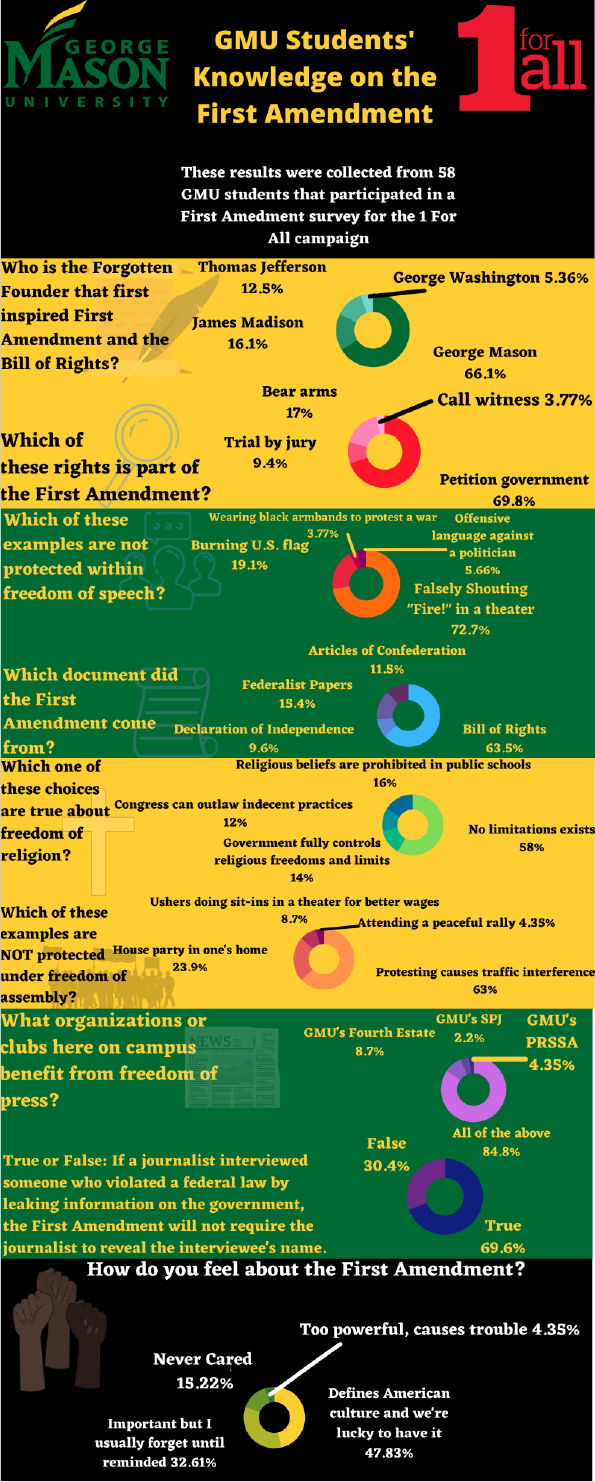
Student Created Tactics
Throughout the semester students from the George Mason University Communication Department created tactics with the grant provided from the Middle Tennessee State University Free Speech Center “1 For All” campaign. These tactics included posters, handbills, pins, reusable bags, pens, hand sanitizers, and rocks labeled with QR codes to generate engagement. These tactics were sent to the communication department students to share safely with the George Mason University community. Posters and handbills were hung on bulletin boards around campus. The pictures below show the outcome of the students tactics and ideas.




Campaign Information
George Mason University’s Communication department received a grant from Middle Tennessee State University Free Speech Center. Due to COVID-19, students were faced with a challenge of George Mason University as a hybrid campus with many classes presented in virtual format and few classes on campus. As shown on the site, students created tactics such as infographics, social media accounts, and more to disperse the message of our First Amendment rights to the Mason community.
Visit MTSU’s “1 for All” website: https://www.mtsu.edu/first-amendment/page/about-1-for-all
